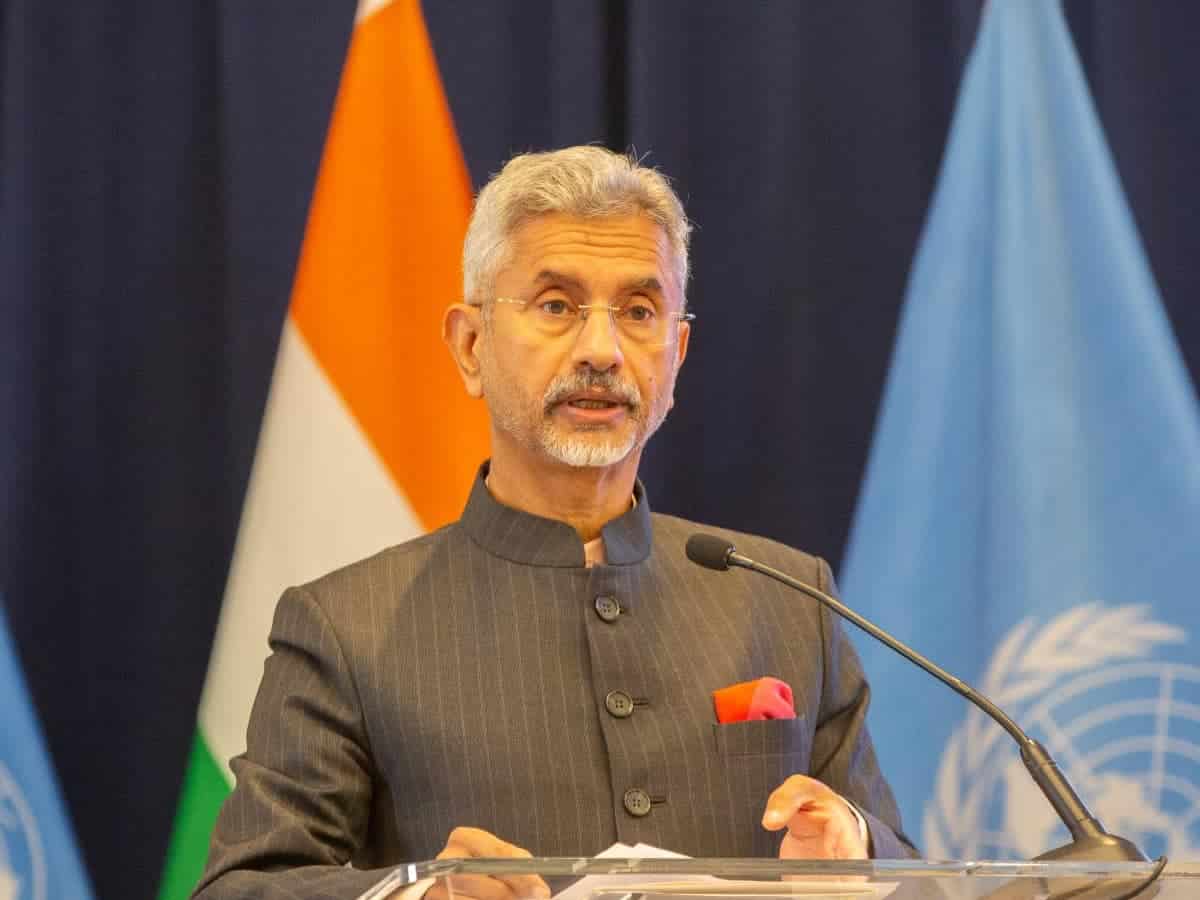
Vienna: External Affairs Minister S Jaishankar Monday held “open and productive” discussions with his Austrian counterpart Alexander Schallenberg on a range of regional and global situations and the two sides inked a number of agreements, including one on migration and mobility for Indian students and professionals.
Jaishankar, who arrived here from Cyprus on the second leg of his two-nation tour, also said his extensive conversation with Austrian leaders, including President Alexander Van der Bellen and Chancellor Karl Nehammer, was very valuable in understanding Austria’s viewpoint, both “about our relationship as well as on current global issues.”
“We had open and productive discussions on a range of regional and global situations. By and large, I would say, our approaches are similar, though obviously we are located in different regions…I appreciate the exchanges we have had both today and yesterday on Ukraine, on the Middle East, on South Asia and the Indo-Pacific. They have brought out the significant convergences in our thinking,” he said while addressing a joint press conference with his Austrian counterpart Alexander Schallenberg here.
Noting that the two sides have concluded a number of agreements, Jaishankar said that a particularly noteworthy one is the initialling of the Comprehensive Migration and Mobility Partnership Agreement.
“It will enable demands for skills and talents to be synchronized with their availability. Similar agreements have been recently concluded by India with Germany, France, Portugal, UK and Denmark, amongst others. It will help us to cooperatively expand our economic opportunities and meet the requirements of the global knowledge economy,” he said. “We want a fair, legal and equal opportunity to demonstrate the contributions of Indian skills and talents.”
Jaishankar on Sunday said one agreement on ‘Working Holiday’ programme will enable Indian students in Austria to work for six months.
On his part, Foreign Minister Schallenberg said that just an initial agreement on a comprehensive migration and mobility partnership has been signed which is of strategic importance for his country.
“It’s a sign of a very intensified cooperation in a matter which is of high importance…because last year, we experienced the highest number ever of asylum seekers in Austria over 100,000. And we had an explosion,” he said.
He said the numbers of Indians coming in illegally via Serbia to Austria reached 18,000 last year from 600 asylum applications from Indian citizens in 2021.
“The problem is not migration to be very clear. We want that we need them. The problem is illegal immigration,” he said. “We need immigration, but immigration controlled by states and not by organised crime by human traffickers.”
He said this migration mobility agreement was exemplary because on the one hand India would take back people come in illegally and on the other side, Austria would make mobility and migration more easy.
Jaishankar said India views Austria as a “serious and consequential partner” when it comes to bilateral cooperation.
“You have experiences and capabilities that are relevant to India’s modernisation and progress. These are guided by government policies but ultimately, implemented through business transactions. Our commitment today is to take both aspects forward in tandem and I look forward to concrete initiatives,” he said.
The two countries have currently trade turnover of approximately USD 2.5 billion. More than 150 Australian companies are present in India. “We would like those numbers also to grow,” he said.
“There are many Austrian companies who can more actively contribute to our national priorities. Similarly, our enterprises too can generate value and employment when located in Austria. Our responsibility as ministers is to make sure that such partnerships happen,” he said.
He said that in the manufacturing domain, the post-Covid world is seeking greater resilience and reliability of supply chains. Similarly, the digital world is putting a greater emphasis on trust and transparency. “We believe that India is part of both solutions.”
The minister said that Austria is an important partner for India in the European Union at a time when it seeks to upgrade its relationship. “We appreciate its strong support for the negotiations underway on the FTA, the investment agreement and the geographical indicators agreement. Their conclusion will obviously have a positive impact on our bilateral economic partnership as well.”
He said the two sides have a strong meeting of minds on the challenges confronting the international community.
“Whether it is pandemics or climate change, terrorism or cyber security, our interests are indeed very convergent,” he added.
This is the first EAM-level visit from India to Austria in the last 27 years, and it takes place against the backdrop of 75 years of diplomatic relations between the two countries in 2023.
